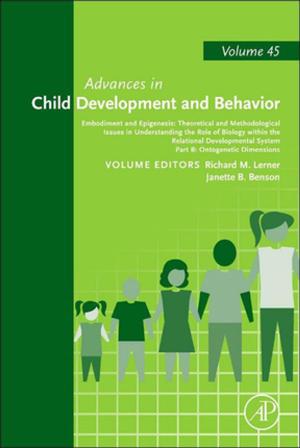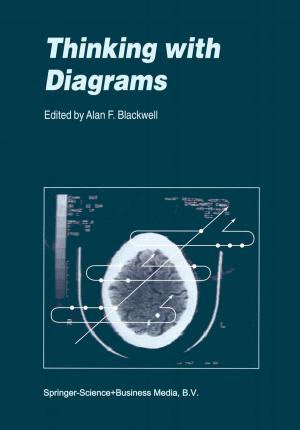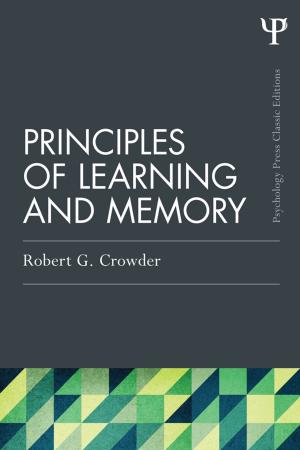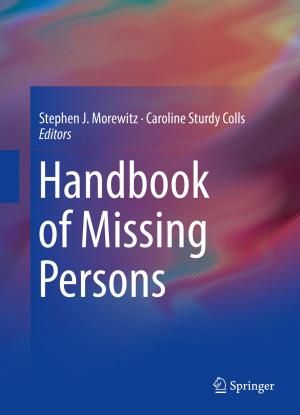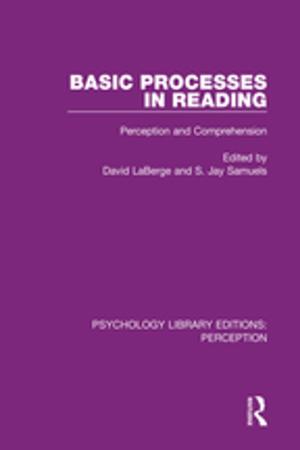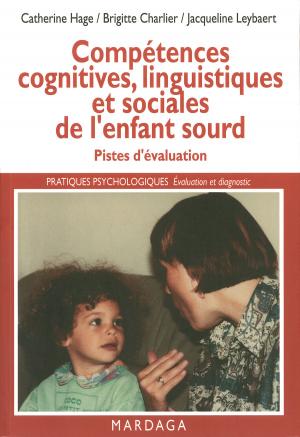A Guide to the Theory, Administration and Interpretation of the Southern California Scales of Development Scales of Cognition Second Edition
Nonfiction, Health & Well Being, Psychology, Testing & Measurement, Cognitive Psychology| Author: | Stephen Dantzig | ISBN: | 9780463364581 |
| Publisher: | Stephen Dantzig | Publication: | September 30, 2018 |
| Imprint: | Smashwords Edition | Language: | English |
| Author: | Stephen Dantzig |
| ISBN: | 9780463364581 |
| Publisher: | Stephen Dantzig |
| Publication: | September 30, 2018 |
| Imprint: | Smashwords Edition |
| Language: | English |
A Guide to the Theory, Administration and Interpretation of the Southern California Scales of Development Scales of Cognition Second Edition is a book written with over a combined 100 years’ experience with developmental educational assessments. The Ordinal Scales is a valid, reliable and cross-cultural assessment tool for all students of any age. The Guide takes a detailed look at the theory behind the scales of cognition as well as how to score and interpret the results. The Ordinal Scales is a criterion referenced assessment based on Piaget’s theories of cognitive development which allows for adaptations that fit the individual needs of the student assessed. The results indicate where the students assessed are functioning across the developmental spectrum from infancy through formal adult logic in a manner that is age independent. Students of any age can be assessed and their performances are compared to specific developmental criteria rather than normative data. The Guide details how to use the Scales with numerous groups of students with special needs, ranging from students with intellectual disabilities, physical disabilities, learning disabilities, autism, bilingual students and others. The complex interplay between cognition and language development is described with practical applications for working with preschool age students. Educational and vocational implications of the various levels of cognitive development are presented in detail. Safety and money concepts are discussed for the students at a pre-logical level of development. Two mock protocols are presented, scored and interpreted for the reader to access some of the more subtle nuances of performance that can be observed with the Scales. Recommendations are offered at each level of development as well as for students with reading difficulties. The second edition of the Guide ends with a list of suggested materials for readers to use when building their own Scales of Cognition kits.
Fifteen years have come and gone since Jean, Mike and I wrote A Guide to the Theory, Administration and Interpretation of the Southern California Ordinal Scales of Development: Scales of Cognition. A lot has happened, both personally and professionally over those years. We lost our dear friend Jean in the interim, but I can still hear her voice as I type these words. She was such an incredible advocate for the developmental needs of school children. She is sorely missed as a mentor and a friend. I left California for the shores of Waikiki, Hawai’i just as the Guide was completed. I packed up my Ordinals Scales Kit and brought it with me. It continues to be my “go-to” cognitive assessment tool and has become a popular alternative assessment here as well (at least within the schools where I work). I now have over 38 years studying and working within the Piagetian framework, including almost 25 years working specifically with the Scales. I have been asked to travel to other parts of the Islands to consult/assess and have trained psychologists on the Scales all over O’ahu. I taught an advanced assessment course for a local university for about 6 years. We focused not only on standardized assessment tools, but also introduced the Scales as an option to be used in place of a standardized approach when such an assessment would be inappropriate.
One-third of all proceeds from the sales of A Guide to the Theory, Administration and Interpretation of the Southern California Scales of Development Scales of Cognition Second Edition: An Assessment Tool for All Students of Any Age will be donated to the United Cerebral Palsy Association of Hawaii.
A Guide to the Theory, Administration and Interpretation of the Southern California Scales of Development Scales of Cognition Second Edition is a book written with over a combined 100 years’ experience with developmental educational assessments. The Ordinal Scales is a valid, reliable and cross-cultural assessment tool for all students of any age. The Guide takes a detailed look at the theory behind the scales of cognition as well as how to score and interpret the results. The Ordinal Scales is a criterion referenced assessment based on Piaget’s theories of cognitive development which allows for adaptations that fit the individual needs of the student assessed. The results indicate where the students assessed are functioning across the developmental spectrum from infancy through formal adult logic in a manner that is age independent. Students of any age can be assessed and their performances are compared to specific developmental criteria rather than normative data. The Guide details how to use the Scales with numerous groups of students with special needs, ranging from students with intellectual disabilities, physical disabilities, learning disabilities, autism, bilingual students and others. The complex interplay between cognition and language development is described with practical applications for working with preschool age students. Educational and vocational implications of the various levels of cognitive development are presented in detail. Safety and money concepts are discussed for the students at a pre-logical level of development. Two mock protocols are presented, scored and interpreted for the reader to access some of the more subtle nuances of performance that can be observed with the Scales. Recommendations are offered at each level of development as well as for students with reading difficulties. The second edition of the Guide ends with a list of suggested materials for readers to use when building their own Scales of Cognition kits.
Fifteen years have come and gone since Jean, Mike and I wrote A Guide to the Theory, Administration and Interpretation of the Southern California Ordinal Scales of Development: Scales of Cognition. A lot has happened, both personally and professionally over those years. We lost our dear friend Jean in the interim, but I can still hear her voice as I type these words. She was such an incredible advocate for the developmental needs of school children. She is sorely missed as a mentor and a friend. I left California for the shores of Waikiki, Hawai’i just as the Guide was completed. I packed up my Ordinals Scales Kit and brought it with me. It continues to be my “go-to” cognitive assessment tool and has become a popular alternative assessment here as well (at least within the schools where I work). I now have over 38 years studying and working within the Piagetian framework, including almost 25 years working specifically with the Scales. I have been asked to travel to other parts of the Islands to consult/assess and have trained psychologists on the Scales all over O’ahu. I taught an advanced assessment course for a local university for about 6 years. We focused not only on standardized assessment tools, but also introduced the Scales as an option to be used in place of a standardized approach when such an assessment would be inappropriate.
One-third of all proceeds from the sales of A Guide to the Theory, Administration and Interpretation of the Southern California Scales of Development Scales of Cognition Second Edition: An Assessment Tool for All Students of Any Age will be donated to the United Cerebral Palsy Association of Hawaii.



